Back in the 1970s, a pioneer in the field of coaching and master of linguistics, Fernando Flores, theorized that language is generative and as such, words are capable of production. He called it The Theory of Speech Acts and it includes the following six powerful communicative opportunities that, when used properly, can bring about change.
- Promises
- Assertions & Assessments
- Declarations
- Requests
- Offers
This article is one in a series of five that examine speech acts. Today, I’d like to share some thoughts about promises and their significance in family business.
Promises go hand-in-hand with trust; the headliner in family business. In fact, trust is so critical that it ought to be counted as an asset on a family business balance sheet. It plays a huge role in the dynamics that will determine the odds of business continuity into the next generation and even the one after that.
Based on Flores’ theory, we know that promises are made to bring about change or commit to a future act. They are often framed by “someday” and “from now on”, indicating a shift in behavior or circumstances. They are defined as a heartfelt commitment to perform an act.
Some promises oft made in a family business:
- Someday this will all be yours.
- You will be the next CEO.
- From now on you can count on me to take care of that for you.
By their very nature, promises carry more weight than a plan or intention. We promise when the stakes are high when it’s important. And from an etymological standpoint, it’s interesting to consider why an unfulfilled promise is described as “broken”. Which leads me to ask, might a broken promise be considered a lie? Hmm, I think that’s a question for a whole other article.
Three Key Factors go into Making a Promise “Successful”
The first is clarity. Effectively communicating your commitment and assuring that the recipient is clear on what to expect. As you can imagine, there is a lot of room for misconception in this phase.
Second, intentionality is a critical factor, how serious are you about your promise? We should make promises only when we are wholeheartedly ready to commit and sincerely intend to act upon them.
And lastly, trustworthiness. What’s the track record been, do you keep your promises? Promises are like a currency secured by our character — kind of like a FICO score.
Keeping our commitments and consistently fulfilling the promises we make builds our trustworthiness. And, of course, when we fail, it is eroded. Trustworthiness is a part of our overall reputation and for the most part, within our control. We all establish our own level of trustworthiness yet it is gauged by others. And, everyone’s gauge is calibrated differently.
Some people will measure based on that one time, twenty years ago we failed to come through. Some infractions outweigh others. I suppose it depends on the level of negative emotional impact the unfulfilled promise caused.
What Does it Matter and Why Should I Care?
The thing is trustworthiness, or lack thereof, plays a big role in the quality of our relationships. A series of successful promises means better relationships. So a good rule of thumb would be to build a strong reputation as someone who never breaks their promises.
But since we are human and things change or get in the way, it’s likely that from time to time, we will break a promise. And when that happens, shame might cause us to react in an emotionally immature way — counting on the hope that the promisee doesn’t notice or soon forgets about the unfulfilled promise. Obviously, that tactic just leads to a lower level of trustworthiness on their gauge and lowers the quality of the relationship.
Fortunately, those who love us tend to forgive us for our broken promises, but forgiving doesn’t equate to forgetting; it still impacts trust.
Promises Broken, 7 Courageous Steps to Redemption
So if the negative impact of a broken promise can never be undone, you might ask, “Is there a way to re-boost your level of trustworthiness?” Yes! Yes, there is but it comes at a price. It requires a level of vulnerability that many of us find uncomfortable or hard to embrace. Unless you have the magical ability to turn back time, your only choice is to embark on these seven difficult steps toward redemption.
1. Acknowledge broken promise to yourself: Awareness is the first step, many of us put off acknowledging a broken promise long enough to forget all about it.
2. Deciding on your new commitment: Decide whether to remake your former promise, make a smaller or a bigger one, or make no promises at all.
3. Prepare for accountability: A promise broken damages trust so be prepared to accept the consequences. There is a cost.
4. Apologize: Owning and saying you’re sorry is critical. Don’t lean on excuses, own it and apologize.
5. Listen and stay consistent: Ask to hear their story and be empathetic to their negative experience. This can be painful but remember that this is not the time to become defensive. Listen, nod, take it in, and ask if there is more.
6. Communicate a new level of commitment: Inquire and actively listen to learn and confirm their willingness to give you a second chance and clearly communicate your new commitment, checking in to confirm it meets their needs.
7. Show and execute the plan: Present your well-devised make-up plan and most important of all, be sure to carry it out. It’s unlikely that you’ll get a third chance.
After reviewing the seven steps you might be thinking, “ Oh my gosh, that’s ridiculous, no one would do all that.” And you’re right, most people don’t. If they did, a lot more friends and families would be talking to each other. But when the stakes are high, for example in business families where relationships are key to continuity, it needs to be the norm.
Reflections on the Act of Promising
To me it feels like “promise” is a word oft associated with childhood. It’s likely that our childhood experiences with promises, both the broken and the fulfilled, are carried forward with us into our adult relationships. I hope this dive into provides a platform for self-reflection and some new awareness around promises, trust, and relationships.
And to assist with that, I leave you with a short list of questions.
- What does the word promise mean to me?
- What feelings does the word “promise” bring to heart?
- What might cause an inclination to over-promise?
- What might get in the way of fulfilling my promises?
- What might be at stake if I break my promise?
- Can I access the courage to be accountable for my broken promise?
Nobody is perfect and at the same time, if all of us do a little better, being more aware of our language, the whole world is a little better for it.
Schedule Your Consultation Now
If this article has brought your awareness to issues in your own family business, let’s talk. I am a Family Business Leadership Coach specializing in family systems and dynamics of multi-generational business-owning families. I work closely with their members to define core values, navigate complex dynamics, and foster alignment. You can reach me at calendly.com/AngelikaOlsen.
For further details, feel free to explore my LinkedIn profile.



